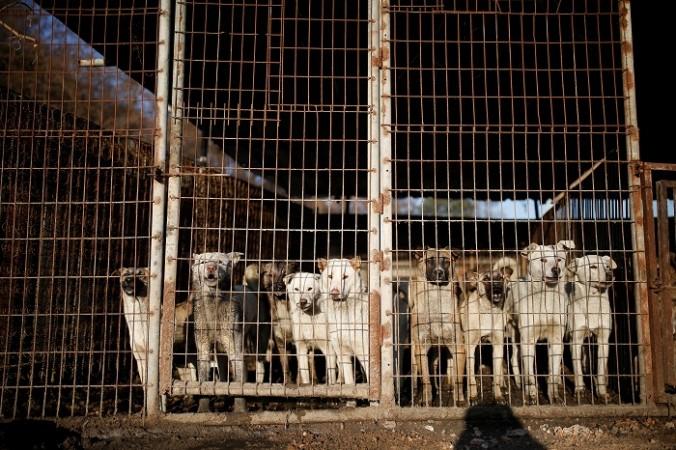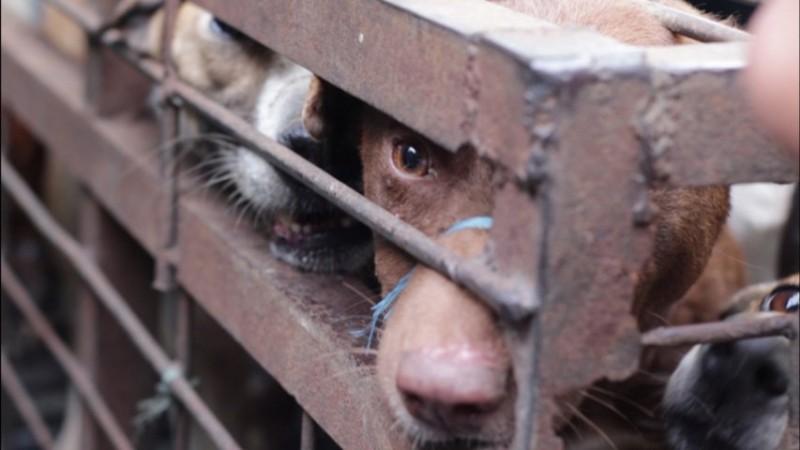
Taking a cue from neighbouring Mizoram, the Nagaland government has banned the trade and consumption of dog meat. State Chief Secretary Temjen Toy in a tweet on Friday said: "The State Government has decided to ban commercial import and trading of dogs and dog markets and also the sale of dog meat, both cooked and uncooked. Appreciate the wise decision taken by the State's Cabinet (on Thursday)." The Chief Secretary tagged his tweet with former union minister and well known animal rights activist Maneka Gandhi, who is currently a Member of Parliament belonging to the Bharatiya Janata Party.
Journalist and former parliamentarian Pritish Nandy urging his followers to join a movement to ban the sale and consumption of dog meat in Nagaland markets, on Wednesday said in a tweet: "This is urgent. You can help make history by sending an email tonight to Nagaland Chief Secretary saying Nagaland must stop dog markets, dog restaurants, and smuggling of dogs into the state. Eating dog meat is inhuman, not just illegal."
The Mizoram government had also recently taken steps to check the open slaughtering of dogs in the state and in March the Mizoram Assembly unanimously passed the Animal Slaughter Bill 2020. Humane Society International/India (HIS/INDIA) said in a statement that Mizoram is the first state in northeast India that has taken a step towards ending its dog meat trade, by amending the law to remove dogs from the definition of animals suitable for slaughter.
The HIS/INDIA statement, issued in Aizawl recently, said that the consumption of dogs is prohibited under India's food safety regulations. "However, the regulations not enforced properly and thousands of dogs each year are cruelly and illegally captured from the streets or stolen from their homes, packed into plastic and jute bags with their mouth stitched or tied, and transported over many days to Mizoram," HIS/INDIA said.
Millions of dogs, cats killed for consumption

Frequent media reports also said that dogs were transported from neighbouring northeastern states and adjoining countries including Myanmar and Bangladesh and traded in Mizoram, Nagaland and other northeastern states. Animal rights activists said that the cruel transport and slaughter of dogs violates several provisions of the Prevention of Cruelty to Animals Act, 1960, the Indian Penal Code, and Food Safety and Standards Authority of India (FSSAI) regulations.
Around 30 million dogs and 10 million cats are killed across Asia for human consumption annually, with the trade most widespread in China, South Korea, Indonesia, Cambodia, Laos, Vietnam and several parts of north east India. However, Hong Kong, the Philippines, Taiwan, Thailand and Singapore have banned the dog meat trade and consumption.
Meanwhile, the Federation of Indian Animal Protection Organisations (FIAPO), India's apex animal rights body, had on Thursday made a fresh appeal to the Nagaland government to enforce stringent animal welfare laws banning the sale, smuggling and consumption of dog meat.
"We are once again shocked and terrified after finding recent images that have emerged from animal markets' in Dimapur (Nagaland's important commercial hub) where dogs are seen in terrified conditions, tied up in sacks, waiting at a wet market for their illegal slaughter, trade and consumption as meat," FIAPO Executive Director Varda Mehrotra said in a statement.
The FIAPO said it has been engaging with the Nagaland government since 2016, underlining how dogs suffer because of the demand for meat.
According to the FIAPO, thousands of dogs are smuggled regularly to Nagaland and Mizoram from Assam, West Bengal and other states. A healthy big dog, caught in Assam for Rs 50, is sold for Rs 1,000 in Nagaland's wholesale market. Dog meat sells for Rs 200 per kg on the streets of Nagaland, said the FIAPO, which works with more than 160 member organisations across 70 cities in the country.
Nagaland and Mizoram-bound vehicles carrying dogs tied in gunny bags with their heads sticking out are frequently caught in Assam and Tripura. But a lot of such vehicles slip through the security barricades.
(With inputs from IANS)

















